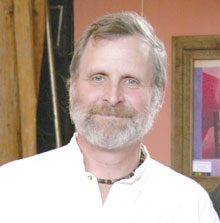Uncommon Common Sense
By Bill Frayer
billfrayer@gmail.com
The Dark Side of Populism

Donald Trump, elected on a populist platform, has installed many non-experts in his cabinet, from Rick Perry in Energy, Besty DeVos in Education, Rex Tillerson in State and Ben Carson in Housing and Urban Deveopment, to name a few. He believes he knows more about ISIS than the generals. “The experts are terrible,” he said. “Look at the mess we’re in with all these experts that we have. Look at the Middle East. If our presidents and our politicians went on vacation for 365 days a year and went to the beach, we’d be in much better shape in the Middle East.”
He is not alone. The appeal of populism, in part, is that the people know best. They have common sense. They have life experience. We don’t need a bunch of elite experts telling us what to do. It’s easy to see the appeal of this view. Unfortunately, it’s also dangerous.
In his new book, The Death of Expertise, Tom Nichols, a professor at the Naval War College, argues that we actually need experts in a complex world. Yet, Americans are actively hostile to the very notion of expertise. “This is new in American culture,” Nichols explains, “and it represents the aggressive replacement of expert views or established knowledge with the insistence that any opinion on any matter is as good as any other.”
We can see examples everywhere. People rely on Google to diagnose their illnesses and explain their treatment options to their doctors. They oversimplify complex issues like international trade, healthcare, and immigration. As a result they often make poor decisions. They fail to vaccinate their children; they invest unwisely; and they fail to pay attention to scientific evidence about diet and drug use. It is tempting to believe that we intuitively know how the world works. But, actually, we don’t, not without input from those who spend their careers studying these issues.
One particularly dangerous consequence of this trend is our lack of media literacy. Children need to learn that everything they see on television is not true. As adults we need to learn to be skeptical of what politicians claim and what experts conclude. We need to understand that truth is not always intuitively clear, and may, in fact, be counterintuitive.
When we witness the effects of a severe winter, for example, it is difficult to believe that the earth is actually warming to dangerous levels. It’s equally easy to believe that whatever we read frequently on the Internet is probably true. This is how “fake news” spreads: readers do not practice media skepticism about preposterous stories.
Experts have advised us of some uncomfortable truths: the climate is warming to dangerous levels, our over-use of antibiotics is causing more dangerous bacterial infections, robotics and use of sophisiticated algorhythms will eliminate many jobs, the coal and steel industries will not return to the US. Believing otherwise is, essentially, magical thinking.
Nichols offers a warning. “When democracy is understood as an unending demand for unearned respect for unfounded opinions,” we are all in trouble. I think we are there already.
{article Bill Frayer}{text}{/article}
- April 2024 – Issue - March 31, 2024
- April 2024 – Articles - March 31, 2024
- April 2024 - March 31, 2024





